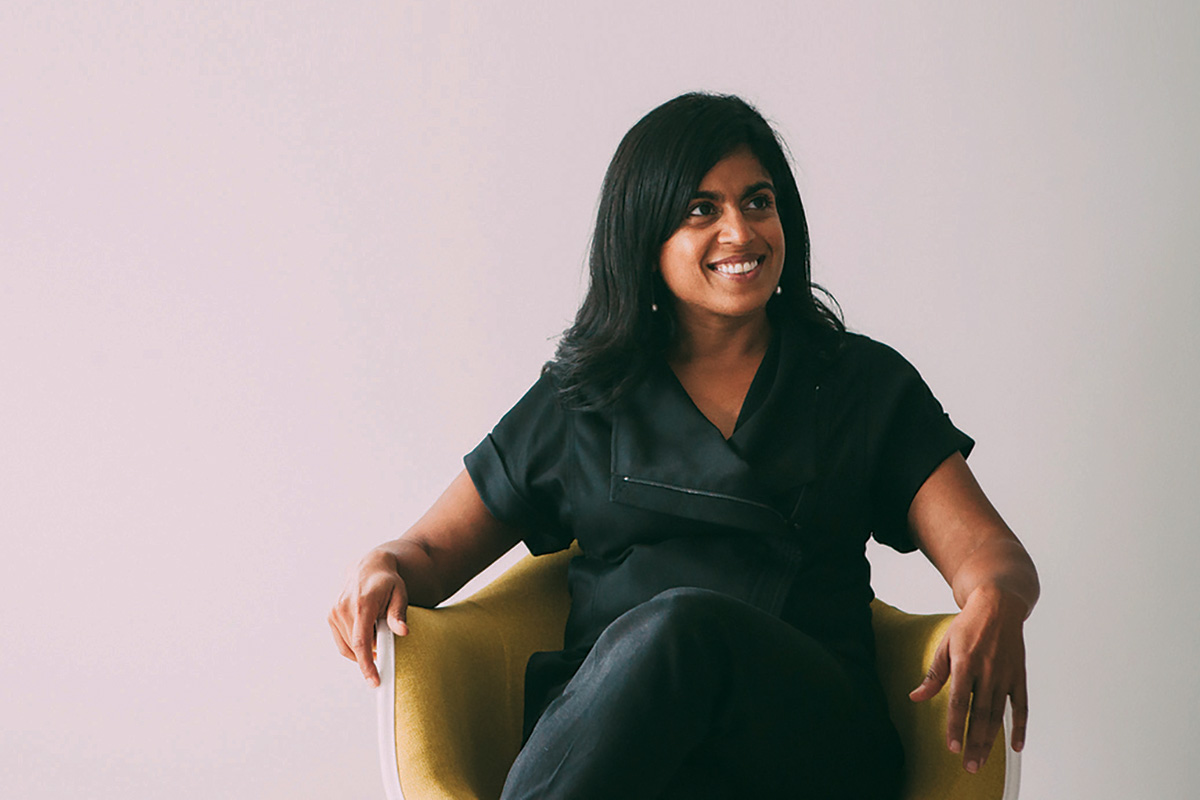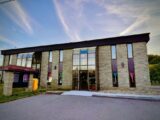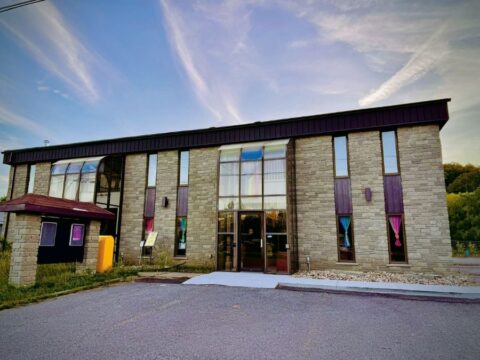In 2016, the Ritz-Carlton Hotel in Toronto played host to a glitzy event attended by Mayor John Tory and Ontario Premier Kathleen Wynne. Its aim? To recognize that Muslims are good citizens, too.
The event was put on by the Muslim Awards for Excellence, otherwise known as MAX, an organization that offers scholarship funding and mentorship opportunities in addition to its annual awards program. In launching MAX, Aazar Zafar, a portfolio manager in Toronto, set out with a very specific vision: to elevate the brand of Muslims in Canada by recognizing and motivating high achievement.
You may unsubscribe from any of our newsletters at any time.
Despite growing up in a culturally diverse place, where his parents taught him that Christians, Muslims and Jews are all similar, Zafar encountered racism “because I was brown.” He detected a shift after the terrorist attacks of 9/11, when he witnessed a growing cascade of negative stereotypes directed specifically at Muslims.
He also grew more attuned to the Muslim Canadians in his orbit who were doing good work. Zafar’s father, who passed away in 2015, inspired in his son a desire to build bridges both within and beyond Muslim communities. “I’ve had amazing experiences growing up here, and I feel like it’s my duty to help . . . to show that [Muslims] are here to be productive members of society,” says Zafar. “We’re saying that we’re Canadian first and also Muslims, and we want to help build a better Canada.”
While community celebrations like the MAX Gala are undeniably positive additions, it is curious that we’ve arrived at a place where the idea that Muslims are beneficial members of society isn’t self-evident.
As Islamophobia simmers around the world, sometimes boiling over in acts of violence, Canada has been held up as a model of multicultural tolerance. Our photogenic prime minister has handed out winter jackets to newly arrived Syrian refugees and has made pointed attempts to include visible minorities — including Muslims — in his cabinet.
But those cheerful moments don’t tell the whole story. While Canadians often smugly consider themselves more tolerant than Americans and Europeans — especially with the confluence of U.S. President Donald Trump and Brexit — a 2016 poll by the Canadian Race Relations Foundation and the Canadian Institute for Identities and Migration found that less than half of Canadians held positive views of Muslims. The number of police-reported hate crimes against Muslims in Canada more than tripled from 2012
to 2015. In addition to the horrific 2017 attack on Muslim worshippers in Quebec City, mosques across the country have been vandalized, their windows smashed and walls covered in graffiti, or targeted by arsonists.
One mosque in downtown Toronto was singled out for a generic “anti-Islam” event in February 2017, when about a dozen protesters showed up to advocate for a ban on Islam and wielded signs conflating the religion with rape, beheadings, honour killings and pedophilia. A protester told the CBC that she was there because Muslims in Canada “don’t want to follow the law of the country.”
While these acts can be written off as bad behaviour committed by fringe elements, there’s no doubt that some of the ideas behind them have been reinforced systemically. Last year, Canada’s Parliament passed M-103, a non-binding motion against religious discrimination that specifically condemned Islamophobia, but members of the Conservative Party and the Bloc Québécois met the motion with considerable resistance. An Angus Reid Institute poll showed that only 29 percent of Canadians were in support of the motion.
These unfavourable views certainly weren’t diminished by former prime minister Stephen Harper’s legacy — or the suggestion during his re-election campaign in 2015 that the federal government would establish a “barbaric cultural practices” tip line. Two years later, then Conservative leadership hopeful Kellie Leitch went on to propose a “Canadian values test” for new immigrants that was suspected to target Muslims and widely criticized for stoking the fears of Canadians who believe they’re engaged in a clash of civilizations. While Leitch wasn’t successful, a majority of Canadians supported her idea.
In response, many Muslim Canadians are going on the offensive, engaging with their neighbours’ anxieties — regardless of how inflammatory. Mosques across the country have opened their doors and encouraged Canadians to stop by with questions and concerns. Anti-
Islamophobia ads, declaring “Muslims are part of Toronto,” were erected across the city’s public transit hubs in 2016. And the Ahmadiyya Muslim Youth Association has launched an “Islam Understood” campaign, which has young Muslims going to door to door, holding open houses and hosting meet-ups in dozens of cities across the country in an attempt to demystify Islam and fight back against negative perceptions.

This is the central objective of its national program called Coffee & Islam, which was launched in 30 cities and towns across Canada in late 2017. Muslim volunteers show up, order lattes and field questions about Sharia law, the status of women or the true meaning of “jihad” when translated from its original Arabic.
James Sinclair is one of the organizers of the program. He often makes himself available to speak about his faith to individual Canadians who range from curious to skeptical to downright hostile. “For the most part, it’s awesome conversation,” says Sinclair, who radiates a patient goodness. In addition to discussing religion, “we talk about current events, sports — anything that might come up.”
Sinclair is a self-described “cynical white guy from Nova Scotia.” He grew up nominally Christian but felt compelled to explore other spiritual avenues. After converting to Islam four years ago, he joined a missionary path, embracing “an ethical life.” But Sinclair’s present mission involves a unique twist on proselytization: convincing his fellow Canadians thatmost Muslims do not espouse the sinister ideologies they may see reflected in the news. You know, the people who strap on suicide belts and walk into crowded markets, who keep women from driving or who fight to spread a violent caliphate across whole regions.
In 2016, he took part in a Canada-wide #MobileMuslims tour, driving a branded truck and trailer from Newfoundland to British Columbia to answer questions about Islam and challenge misconceptions. In Quebec City, they parked downtown, eager to engage with the steady flow of pedestrians — until a restaurateur came outside and started yelling obscenities, insisting that he didn’t want anything visibly Muslim anywhere near his business.
Many people, upon being told that they couldn’t park in front of a restaurant because the optics of their religion were bad for business, might be outraged. Few would recommend the dinner special to passersby — but that’s exactly what Sinclair did. “As people came by
and we spoke to them, we would direct them into his restaurant,” he says. “At the end of the day, the same guy who cursed us out invited us for dinner.”
Sinclair likes to tell this story as a way to illustrate his belief that perceptions can be changed through acts of kindness and good character. And on the one hand, this anecdote is a touching example of how destructive misconceptions can be interrupted by a positive interaction. But on the other hand, there’s something deeply humiliating about having to win the hearts and minds of fellow citizens when it comes to the right to simply park your vehicle on the street without persecution.
And many Muslim Canadians now find themselves in precisely this position: digging out of a deficit of negative prejudice, tolerating fundamentally dehumanizing situations, and working double time to disprove misconceptions about their faith and culture. Their efforts raise necessary questions about the unique expectation that all Muslims take responsibility for the actions of those who share their faith, and the role that marginalized groups can take — and whether or not they should take it — in counteracting negative stereotypes.
While all racialized groups in Canada struggle against less than favourable labels, few have generated the same levels of fear, resentment, condescension and disdain as Muslim Canadians. And there are no comparably explicit image-rehabilitation movements. Muslim Canadians are constantly working to overturn very specific and pervasive stereotypes. One burden placed on them is the ongoing expectation to denounce acts of violence committed by any individual or group that claims Islam anywhere in the world. Muslim Canadians have been denouncing violence ad nauseam since 9/11, and it hasn’t made any difference in how people perceive them, says Azeezah Kanji, director of programming for the Noor Cultural Centre in Toronto.
Ayesha S. Chaudhry, Canada Research Chair in Religion, Law and Social Justice at the University of British Columbia, says these denunciations can be understandable acts of self-preservation by communities that don’t “trust those around them to see them as a complex group of 1.8 billion people across the globe that actually don’t have conferences and decide what they’re going to do next week. It’s this institutionalized and pervasive Islamophobia that keeps Muslims on the defensive.”
All people have multiple identities — Canadian, Muslim, woman, daughter and professor, for example — and yet there’s a strong temptation to see certain groups as a monolithic block. Chaudhry worries that Muslim Canadians assume a sort of complicity by even acknowledging the acts of Muslim extremists. “I don’t have anything in common with them, and they don’t represent me,” she says. “But we have to decide when the external gaze decides that someone’s behaviour reflects on me and demands ownership.”

In her forthcoming book The Colour of God, Chaudhry explores this theme. “One of the things I talk about a lot is what it feels like to be part of a group that has to say, over and over again, ‘Hey, I’m human,’” she says. “That I also behold beauty and like the smell of roses and can experience joy and have this varied and complicated life. Ultimately, when systemic racism and discrimination are enshrined, then an entire population of people is dehumanized.”
Humanizing Muslim Canadians is what Shelina Merani, a comedian in Ottawa, describes as the aim of her standup routine. She typically starts off her sets by making a joke about how she’s lucky her husband let her leave the house, and then might riff on the exoticism non-Muslims associate with her simple head covering: “People always ask me what I call the thing on my head in my culture. I say, ‘It’s called a scarf.’”
“With comedy, the impact can be huge because you’re breaking down barriers just by being on stage,” she says. “I want to demonstrate that I can be fully Muslim and fully western.”
But while Merani describes her comedy as a positive way to challenge preconceived notions, she’s also acutely aware of the limits of her talents when it comes to convincing other Canadians that she belongs. “I’m expected to renounce parts of my faith to be considered progressive,” she says. “I do think some people would prefer that Muslims either stay in our ghettos and not reach out, or abandon much of our faith.”
Some have linked the false choice between faith and national identity to statistics that indicate Muslims are struggling to reconcile the two. According to a 2016 survey from the Environics Institute, 83 percent of Muslims felt “very proud” to be Canadian (versus 73 percent of non-Muslims), but half of Muslims felt that their religious identity was more important than their national identity. That particular attachment to religious identity might be driven by another finding from the survey: a third of Muslims are inclined to believe that they will face more, not less, discrimination and stereotyping in the future.
Unsurprisingly, constant scrutiny takes a toll on social cohesion. And it’s also exhausting for many Muslim Canadians, sick of being perceived as the dangerous “other” — the terrorist hostile to liberalism, the immigrant who refuses to integrate or the refugee who sucks up much-needed resources.
“There’s a burden people place on Muslims to prove themselves not guilty, and it doesn’t apply to other faith groups,” says Ruba Ali Al-Hassani, a PhD candidate at Osgoode Hall Law School in Toronto and a founding member of the Canadian Association of Muslim Women in Law. “There’s a constant pressure to prove yourself Canadian, aligned with ‘Canadian values’ — which is something we can’t even define. . . . We have nothing to apologize for, and we need to be less defensive. It’s sad because it should be assumed that we condemn violence, just like every other group in Canadian society.”
When it comes to forging a path forward, it’s fair to say that both individuals and institutions in Canada have been reluctant to examine their complicity with rising Islamophobia. “I think it’s very important that we hold our political [leaders] to account for engaging in representations that perpetuate stigmas against Muslims, but that also downplay the dangers of racism and white supremacy,” says Kanji. Those representations, she says, extend to the media, where the gaze lingers unduly on violence committed by Muslims, indulging an unfair narrative.
Chaudhry notes that there’s a debate among Muslims about whether to even participate in this often-ugly discourse about the place of Islam in Canadian society, with some people refusing to engage and others fearing that not doing so will lead to further isolation and persecution. “But the conversation should be the other way around,” says Chaudhry. “Instead of asking about the responsibilities of the marginalized, we need to ask about the responsibility of a pluralistic society to make sure that the negative narratives that surround marginalized groups are erased by curricular development, national education campaigns and systemic changes.”
Al-Hassani wishes she could be more optimistic about the future. She notes the outpouring of goodwill in the aftermath of the Quebec City mosque attack, when people reached out and attended vigils, and most Canadians — regardless of assumed religious or cultural differences — came together to express their horror. But Crown prosecutors declined to file terrorism charges against the white nationalist shooter (murder charges were still applied), and less than a year later, Quebec’s Bill 62 made it illegal for people wearing face coverings to give or receive public services — a move widely believed to target Muslim women.
“These events [such as the mosque attack] don’t always bring us together,” says Al-Hassani. And it’s true that rising Islamophobia is a very visible strain of intolerance, testing the limits of inclusion in one of the world’s most multicultural places. “Immigrants, refugees and visible minorities still have a lot to contend with,” she says.
But until such a time when broader society acknowledges a responsibility to make all Canadians feel welcome and valued, the burden of proof seemingly lies with individual Muslims and community initiatives. For Zafar, who’s planning the third annual MAX Gala for October of this year, it’s a challenge he’s prepared to accept. “I understand that people might be confused and that questions might stem from curiosity,” he says. “If we can help satisfy their curiosity, I’m happy to respond.”
This story first appeared in The Observer’s May 2018 edition with the title “The charm offensive.”















Thank you for the article. I appreciate the efforts of the Muslim community for reaching out. I was a little disappointed that it quickly turned to primarily and issue of racism and Islamophobia. For readers of this article I think to put the issue of Islamophobia in Canada in fullest perspective one ought to read the 2017 book “Submission, The Danger of Political Islam to Canada”. One might not agree with the the conclusion s of that book. I recommend it because some of the writers are well educated and prominent moderate Canadian Muslims. They include Raheel Raza, Tahir Gora, and Saied Shoaaib. Raza is President, of the Council for Muslims facing tomorrow and is based out of Toronto. She is passionate about her faith. She and the others are all anti-racists. However they are not afraid to constructively criticize the Muslim leadership in Canada for not doing more to counter radicalization in the Muslim communities in Canada.